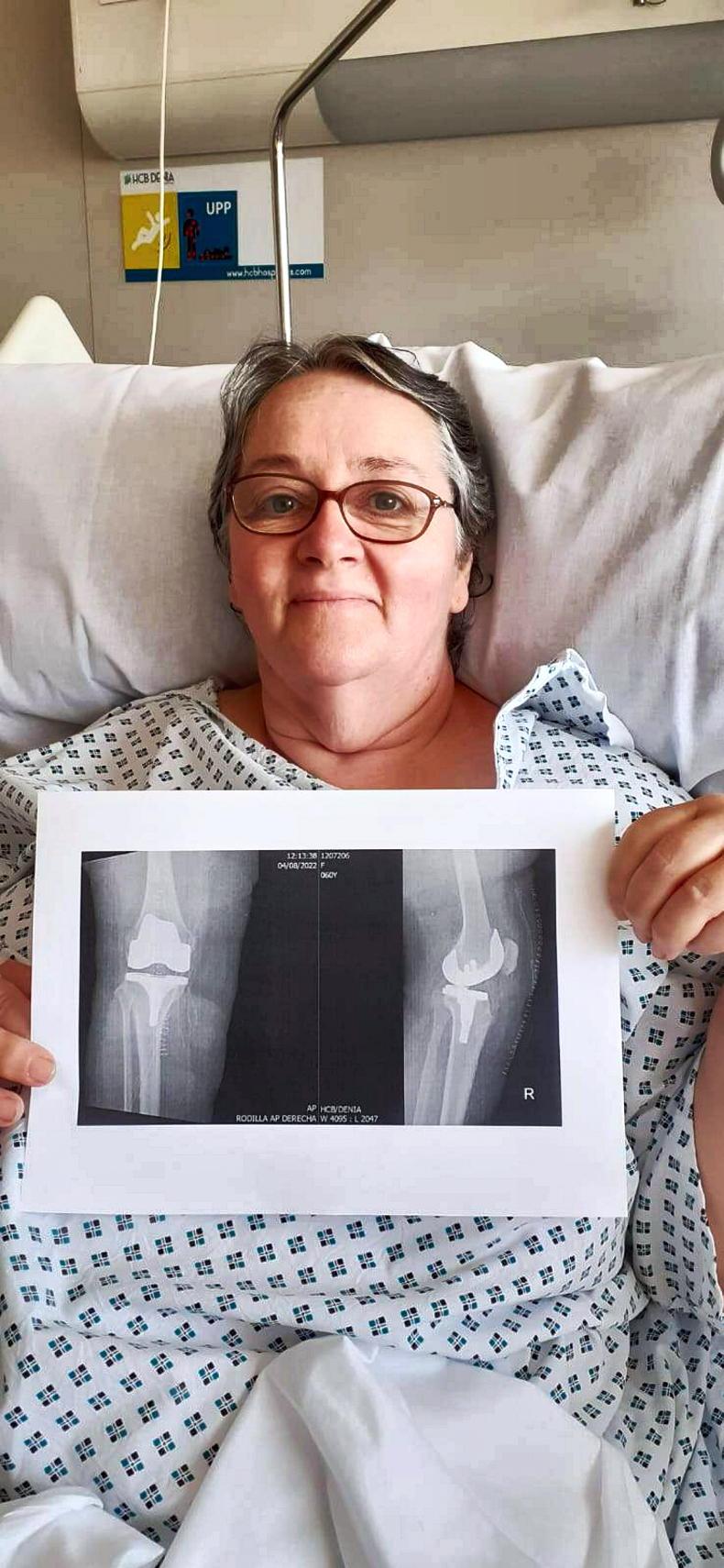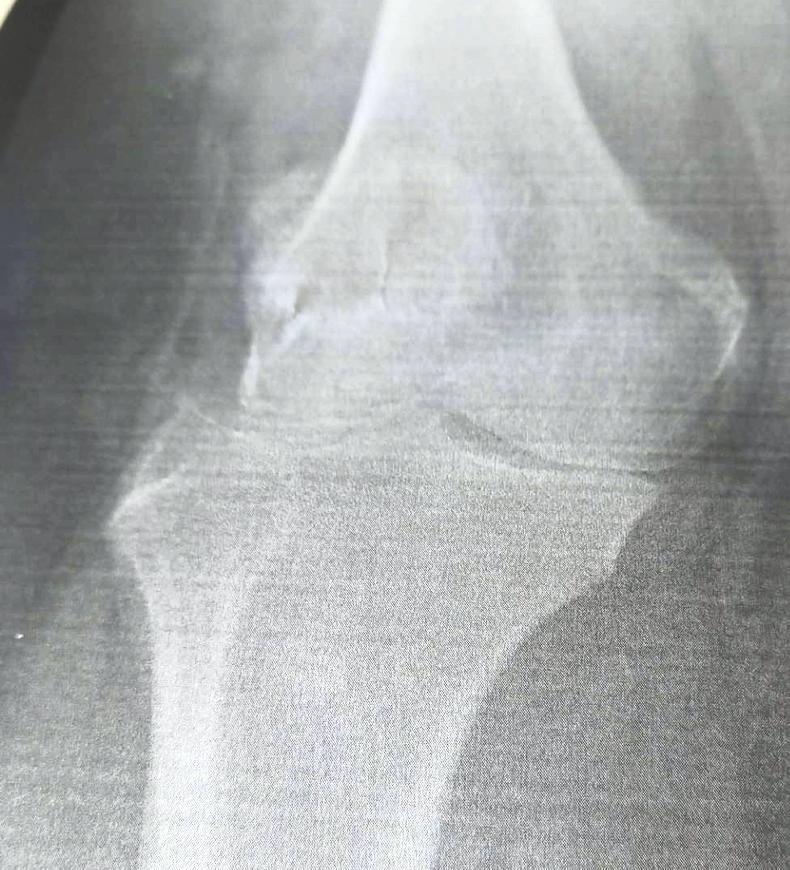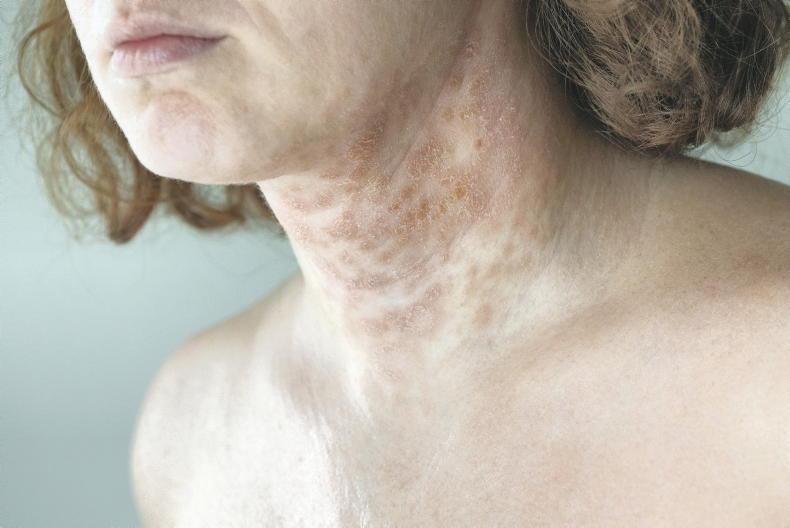Up, up and away…
Being prepared to travel to the North of Ireland or to European countries like Spain to have a hip or knee replacement operation can mean side-stepping long waiting lists in this country and getting most of the cost of your operation back.
Yes, you have to come up with the money up front (the cost of the operation and the cost of accommodation and flights for what could be a 12-day stay depending on your operation) but three to six months after you return, all or most of the cost of the surgery element of your trip will be reimbursed by the HSE.
These schemes are called the Northern Ireland Planned Healthcare Scheme and the EU Cross Border Directive.
The NI scheme (following Brexit) was extended in July of this year and is expected to run until July 2023.
Organisation
Sounds too far-fetched? Couldn’t consider going that far for an operation, especially on your own? While doing all the organising that a trip would involve might be beyond the scope of many individuals, several third-party companies have now sprung up that offer to organise everything for you from A to Z; from form filling to driving you back and forth from hotel and hospital.
There are currently three companies that we know of doing this – Healthcare Abroad.ie, Surgerynow.ie and Trasna.com.
A company featured in Irish Country Living in the past– Charter Medical – has this aspect of its business on hold since the pandemic.
Case study: Denise
Nagle, Schull, Co Cork
So, what’s it like to head off to Spain for an operation?
We asked Denise Nagle, a farmer from west Cork about her experience of doing just that this July. She and her husband keep beef cattle on their farm near Schull.
It was back in spring that Denise first realised she had a problem.
“I fell in February and hurt my knee,” she says, “and the painkillers and anti-inflammatories didn’t work. An MRI showed that I needed a new knee. There was arthritis and wear and tear showing. The knee was very worn and broken and the pain excruciating for hours sometimes and other times didn’t hurt that much depending on what position it was in.”

Denise Nagle after her knee operation in Spain
For Denise, it was a case of “I need a new knee, what am I going to do?”
She didn’t have private medical insurance so she knew she would face perhaps years on a public health waiting list. “I thought how am I going to put up with this pain maybe for the next five years? I’m 60 years old and didn’t envisage having to live like that,” she says.
“My sister-in-law had heard about the EU scheme, so I looked into it. I came across a company [Healthcareabroad.ie] that would organise everything for me. It sounded too good to be true. My first thought is ‘where’s the scam’ knowing how long we have to wait over here.”
By June, Denise felt ready to take the Spanish route having researched it as well as she could.
“You try to battle through, when it’s two of you and it’s your livelihood, you just keep going, but my knee wasn’t going to get better by itself so I decided to go for the scheme. I was having physio to keep the muscles around it toned and strong though, from February on.”
Arrangements were made very quickly once she signed the consent form for the company to get her medical file from her GP in order to liaise with the chosen hospital in Alicante, Spain.
“They helped organise the loan from our local credit union too. The HSE reimburses the credit union directly, so that was very helpful. I knew the cost of the operation would be reimbursed, but I would need about €2,000 to cover flights and accommodation and interest on the loan, which was manageable.”

Denise Nagle's knee before her operation in Spain
Sending a lot of money online did worry her though.
“I was relieved when I was told that I could have the money in my own account and make the payment myself when I got to the hospital. I paid for everything as I went along then.”
Travelling to Spain
Denise went to Spain on her own, feeling that she was better at dealing with things like that on her own, but also because she had faith that the support would be there when she arrived. She speaks highly of how she was treated.
“It was five-star treatment all the way. You have a helper with you every step of the way, from the airport to the hotel and for all the to-ing and fro-ing back and forward to the hotel when required.”
She flew over on Sunday 31 July and had free wheelchair assistance at Dublin airport and ramp lift onto the plane there and back because she couldn’t manage the steps.
“My scans and x-rays had all been looked at already when I arrived and on the Monday I had a consultation, then the pre-op on Tuesday and the operation next day. I spent five days in the hospital and the rest recovering in the hotel. It was amazing. The only small gripe I had was the hospital food, but I wasn’t there for the cuisine!”
Denise accepts that travelling abroad wouldn’t be for everyone, but her experience has been positive.
“Some people mightn’t be able to afford it or couldn’t get a loan or don’t want to go on their own or are worried about going to a foreign country and the language barrier, but it wasn’t a problem where I was,” she says.
Denise spent a further week in the hotel before travelling home, but while she was a bit anxious about the flight, it worked out well.
“I purposely booked an aisle seat,” she says, “so that my right leg was nearer the aisle. The Ryanair staff were brilliant too, frequently checking that I was OK.”
Denise will have no qualms about returning to the same place when her other knee needs replacing. When we spoke with her, she was still on two crutches, but was progressing every day.
“I went up the stairs the day I came home,” she says. “I’m not kneeling down scrubbing floors, but in another month or so I should be able to function quite well.”
www.hse.ie/eng/services/list/1/schemes/cross-border-directive/appreimbursement/
Paul Byrne is the chief operating officer with Healthcare Abroad.
“We’re basically a logistics company for Irish patients to help them get procedures and operations done under the EU Cross Border Directive in other EU hospitals, mostly in Spain, but we also have hospitals in Portugal and Holland. We have arrangements with 46 hospitals and we match the patient with the hospital,” he says. “We collate the paperwork and support the patient while over there. The patient books their own flights but we negotiate a good rate with the hotel. We don’t get paid by the patient or the HSE. We get a commission from the hospital.”
He points out the rules of the scheme administered by the HSE Cross Border Directive office in Kilkenny.
Paul had experience of using the scheme himself in 2019 (with another logistics company) when he travelled for back surgery so he feels that he can recommend the process. “It’s not for everybody, some people might be too elderly to travel, but for anyone in pain it’s an unbelievable option at a time of long waiting lists,” he says.
Price wise, a hip or knee replacement costs under €12,000 and cataracts €4,000 with the logistics companies negotiating strategic partnerships to get the best price (and one that will closely match what the HSE will pay).
Rules:
You can go anywhere in the EU to have a procedure done if you are on a waiting list in Ireland for it.You have to pay up front for the procedure. You are under the care of HSE while you travel and when you come back.The HSE will not refund your flights and accommodation costs.Operation, consultation and pre-op costs are covered.Money for the hospital is usually paid directly by the credit union/patient to the hospitals and if you’ve had a loan from the credit union, the HSE reimburses them directly. There are two pathways – pre-approval and referral. Pre-approval means two trips and referral only one. Pre-approval is necessary if travelling to Northern Ireland, but referral is used when going abroad so only one trip is necessary. Any extra up-to-date scans that are needed are paid for here (by the hospital abroad) before the person travels. Not every operation is 100% covered. You may have to pay a percentage of the cost if the hospital in the EU country charges more than what the HSE pays for the same operation here. “Knees and hips are covered, but my back operation wasn’t, but the co-payment usually comes to a difference of a few hundred euro. We tell people that 90% of the operations are 100% refundable. We use the HSE [Diagnosis Related Group] code list as our reference.”
Northern Ireland Planned Healthcare Scheme
Patients going from the Republic to the North of Ireland
As at 14 August 2022, 1,287 claims have been processed in respect of applications received since 1 July 2021, at a total cost of £8.14m.
Patients may submit more than one claim per approved application (e.g. getting two cataracts done)
For details of the scheme see:
www2.hse.ie/services/schemes-allowances/niphs/
To check if you are eligible: contact the NIPHS office.
Republic of Ireland
Reimbursement Scheme
Patients coming here from Northern Ireland for surgery
The Republic of Ireland Reimbursement Scheme has been given an extra £5m from the Northern Ireland government so has been extended for another 12 months* from 30 June 2022, allowing people on waiting lists in Northern Ireland to access treatment in the Republic of Ireland.
The scheme was established to replace the European Union’s Cross-Border Health Directive, which ended in June 2021, following Brexit.
Eligible patients must first be diagnosed as having a clinical need for treatment available in the North, and are then required to find a private provider across the border that offers the care they require, and apply to the scheme. Healthcare “traffic” from the North to the Republic of Ireland:
2021: €4,046,742.86 with 1,187 reimbursements processed.
2022: (to end May) €4,359,248.64 with 1,225 reimbursements processed.
*The scheme’s extension will end once the extra £5m has been allocated or on 30 June 2023, whichever comes first.
Useful websites:
Cross Border Directive (CBD)
www.healthcareabroad.ie
Other companies that provide an “all-in service”
www.surgerynow.ie and www.trasna.com/
Hospitals in Northern Ireland will also help you through the application process, eg Kingsbridge in Belfast or the Mater Private for traffic the other way.
Read more
Health: mental health training for agricultural advisors
Health: why we need to be more aware of kidney disease
Up, up and away…
Being prepared to travel to the North of Ireland or to European countries like Spain to have a hip or knee replacement operation can mean side-stepping long waiting lists in this country and getting most of the cost of your operation back.
Yes, you have to come up with the money up front (the cost of the operation and the cost of accommodation and flights for what could be a 12-day stay depending on your operation) but three to six months after you return, all or most of the cost of the surgery element of your trip will be reimbursed by the HSE.
These schemes are called the Northern Ireland Planned Healthcare Scheme and the EU Cross Border Directive.
The NI scheme (following Brexit) was extended in July of this year and is expected to run until July 2023.
Organisation
Sounds too far-fetched? Couldn’t consider going that far for an operation, especially on your own? While doing all the organising that a trip would involve might be beyond the scope of many individuals, several third-party companies have now sprung up that offer to organise everything for you from A to Z; from form filling to driving you back and forth from hotel and hospital.
There are currently three companies that we know of doing this – Healthcare Abroad.ie, Surgerynow.ie and Trasna.com.
A company featured in Irish Country Living in the past– Charter Medical – has this aspect of its business on hold since the pandemic.
Case study: Denise
Nagle, Schull, Co Cork
So, what’s it like to head off to Spain for an operation?
We asked Denise Nagle, a farmer from west Cork about her experience of doing just that this July. She and her husband keep beef cattle on their farm near Schull.
It was back in spring that Denise first realised she had a problem.
“I fell in February and hurt my knee,” she says, “and the painkillers and anti-inflammatories didn’t work. An MRI showed that I needed a new knee. There was arthritis and wear and tear showing. The knee was very worn and broken and the pain excruciating for hours sometimes and other times didn’t hurt that much depending on what position it was in.”

Denise Nagle after her knee operation in Spain
For Denise, it was a case of “I need a new knee, what am I going to do?”
She didn’t have private medical insurance so she knew she would face perhaps years on a public health waiting list. “I thought how am I going to put up with this pain maybe for the next five years? I’m 60 years old and didn’t envisage having to live like that,” she says.
“My sister-in-law had heard about the EU scheme, so I looked into it. I came across a company [Healthcareabroad.ie] that would organise everything for me. It sounded too good to be true. My first thought is ‘where’s the scam’ knowing how long we have to wait over here.”
By June, Denise felt ready to take the Spanish route having researched it as well as she could.
“You try to battle through, when it’s two of you and it’s your livelihood, you just keep going, but my knee wasn’t going to get better by itself so I decided to go for the scheme. I was having physio to keep the muscles around it toned and strong though, from February on.”
Arrangements were made very quickly once she signed the consent form for the company to get her medical file from her GP in order to liaise with the chosen hospital in Alicante, Spain.
“They helped organise the loan from our local credit union too. The HSE reimburses the credit union directly, so that was very helpful. I knew the cost of the operation would be reimbursed, but I would need about €2,000 to cover flights and accommodation and interest on the loan, which was manageable.”

Denise Nagle's knee before her operation in Spain
Sending a lot of money online did worry her though.
“I was relieved when I was told that I could have the money in my own account and make the payment myself when I got to the hospital. I paid for everything as I went along then.”
Travelling to Spain
Denise went to Spain on her own, feeling that she was better at dealing with things like that on her own, but also because she had faith that the support would be there when she arrived. She speaks highly of how she was treated.
“It was five-star treatment all the way. You have a helper with you every step of the way, from the airport to the hotel and for all the to-ing and fro-ing back and forward to the hotel when required.”
She flew over on Sunday 31 July and had free wheelchair assistance at Dublin airport and ramp lift onto the plane there and back because she couldn’t manage the steps.
“My scans and x-rays had all been looked at already when I arrived and on the Monday I had a consultation, then the pre-op on Tuesday and the operation next day. I spent five days in the hospital and the rest recovering in the hotel. It was amazing. The only small gripe I had was the hospital food, but I wasn’t there for the cuisine!”
Denise accepts that travelling abroad wouldn’t be for everyone, but her experience has been positive.
“Some people mightn’t be able to afford it or couldn’t get a loan or don’t want to go on their own or are worried about going to a foreign country and the language barrier, but it wasn’t a problem where I was,” she says.
Denise spent a further week in the hotel before travelling home, but while she was a bit anxious about the flight, it worked out well.
“I purposely booked an aisle seat,” she says, “so that my right leg was nearer the aisle. The Ryanair staff were brilliant too, frequently checking that I was OK.”
Denise will have no qualms about returning to the same place when her other knee needs replacing. When we spoke with her, she was still on two crutches, but was progressing every day.
“I went up the stairs the day I came home,” she says. “I’m not kneeling down scrubbing floors, but in another month or so I should be able to function quite well.”
www.hse.ie/eng/services/list/1/schemes/cross-border-directive/appreimbursement/
Paul Byrne is the chief operating officer with Healthcare Abroad.
“We’re basically a logistics company for Irish patients to help them get procedures and operations done under the EU Cross Border Directive in other EU hospitals, mostly in Spain, but we also have hospitals in Portugal and Holland. We have arrangements with 46 hospitals and we match the patient with the hospital,” he says. “We collate the paperwork and support the patient while over there. The patient books their own flights but we negotiate a good rate with the hotel. We don’t get paid by the patient or the HSE. We get a commission from the hospital.”
He points out the rules of the scheme administered by the HSE Cross Border Directive office in Kilkenny.
Paul had experience of using the scheme himself in 2019 (with another logistics company) when he travelled for back surgery so he feels that he can recommend the process. “It’s not for everybody, some people might be too elderly to travel, but for anyone in pain it’s an unbelievable option at a time of long waiting lists,” he says.
Price wise, a hip or knee replacement costs under €12,000 and cataracts €4,000 with the logistics companies negotiating strategic partnerships to get the best price (and one that will closely match what the HSE will pay).
Rules:
You can go anywhere in the EU to have a procedure done if you are on a waiting list in Ireland for it.You have to pay up front for the procedure. You are under the care of HSE while you travel and when you come back.The HSE will not refund your flights and accommodation costs.Operation, consultation and pre-op costs are covered.Money for the hospital is usually paid directly by the credit union/patient to the hospitals and if you’ve had a loan from the credit union, the HSE reimburses them directly. There are two pathways – pre-approval and referral. Pre-approval means two trips and referral only one. Pre-approval is necessary if travelling to Northern Ireland, but referral is used when going abroad so only one trip is necessary. Any extra up-to-date scans that are needed are paid for here (by the hospital abroad) before the person travels. Not every operation is 100% covered. You may have to pay a percentage of the cost if the hospital in the EU country charges more than what the HSE pays for the same operation here. “Knees and hips are covered, but my back operation wasn’t, but the co-payment usually comes to a difference of a few hundred euro. We tell people that 90% of the operations are 100% refundable. We use the HSE [Diagnosis Related Group] code list as our reference.”
Northern Ireland Planned Healthcare Scheme
Patients going from the Republic to the North of Ireland
As at 14 August 2022, 1,287 claims have been processed in respect of applications received since 1 July 2021, at a total cost of £8.14m.
Patients may submit more than one claim per approved application (e.g. getting two cataracts done)
For details of the scheme see:
www2.hse.ie/services/schemes-allowances/niphs/
To check if you are eligible: contact the NIPHS office.
Republic of Ireland
Reimbursement Scheme
Patients coming here from Northern Ireland for surgery
The Republic of Ireland Reimbursement Scheme has been given an extra £5m from the Northern Ireland government so has been extended for another 12 months* from 30 June 2022, allowing people on waiting lists in Northern Ireland to access treatment in the Republic of Ireland.
The scheme was established to replace the European Union’s Cross-Border Health Directive, which ended in June 2021, following Brexit.
Eligible patients must first be diagnosed as having a clinical need for treatment available in the North, and are then required to find a private provider across the border that offers the care they require, and apply to the scheme. Healthcare “traffic” from the North to the Republic of Ireland:
2021: €4,046,742.86 with 1,187 reimbursements processed.
2022: (to end May) €4,359,248.64 with 1,225 reimbursements processed.
*The scheme’s extension will end once the extra £5m has been allocated or on 30 June 2023, whichever comes first.
Useful websites:
Cross Border Directive (CBD)
www.healthcareabroad.ie
Other companies that provide an “all-in service”
www.surgerynow.ie and www.trasna.com/
Hospitals in Northern Ireland will also help you through the application process, eg Kingsbridge in Belfast or the Mater Private for traffic the other way.
Read more
Health: mental health training for agricultural advisors
Health: why we need to be more aware of kidney disease











SHARING OPTIONS